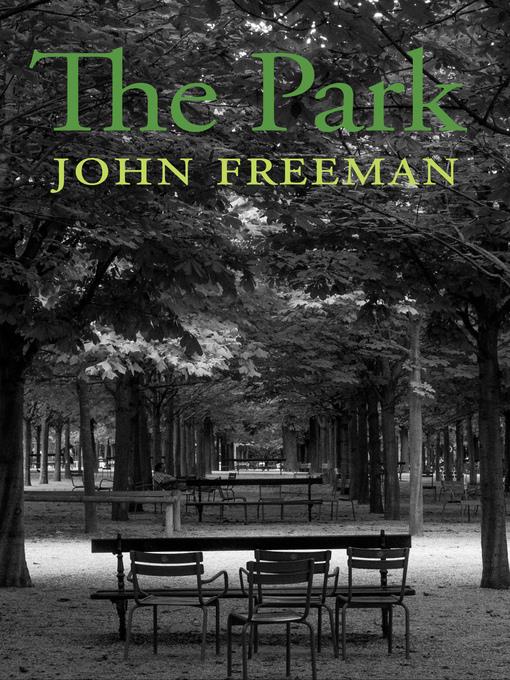
The Park
کتاب های مرتبط
- اطلاعات
- نقد و بررسی
- دیدگاه کاربران
نقد و بررسی

February 17, 2020
The atmospheric second book from Freeman (Maps) is mostly set in and around a Paris park he frequents. The park accepts what enters: animals who “don’t need to know/ it’s a park” and humans, who inhabit the “park beneath the park,” a place in the mind where one can feel alone among others. As in any city, unfathomable wealth brushes up against poverty, despair, and violence; homeless lurk in the shadows, and “almost all statuaries killers.” The lover of parks can’t forget the sorrow the park is meant to soothe. Returning from a trip to a war zone, the speaker is too disturbed to enter: “I walk its perimeter in a rage, joggers/ and toddlers, lovers, legs entangled.” Freeman uses very short lines that can seem over-pruned; contrastingly, the longer lines of what resemble prose poems pack more force: “On the edge of Jardin du Luxembourg nightjars fret/ the dark, shrikes pace the grounds, that fierce khanjar between the eyes.” These meditative poems offer a thoughtful exploration on the contradictions and connections formed in public spaces.

Starred review from May 1, 2020
Freeman is a foremost example of that supposedly expired species: the man of letters. He's a former president of the National Book Critics Circle, former editor of Granta, executive editor of LitHub, editor of the biannual anthology Freeman's, and an outstanding reviewer; few poets have reviewed as many books as he has. His second book of poetry (after Maps) takes as its central theme the history and disposition of the Luxembourg Gardens in Paris, using that lovely space to explore how parks as space both natural and carefully constructed can represent the larger world. Like spokes of a wheel, these lyrics, generally brief, address the garden directly and indirectly, obliquely telling its story but also casting light on modern life and modern relationships. Many of the poems are vignettes, often expressing regret at missed chances or lost love: "I am swimming/ in time again," says the poet in "Between," and the great city garden proves to be the vehicle for an insightful journey. VERDICT A fine collection of spare, somber lyrics from an important figure in contemporary writing; with this volume, Freeman steps forward for merited attention as a poet in his own right. [See Barbara Hoffert's "Versifying," LJ 1/20.]--Graham Christian, formerly with Andover-Harvard Theological Lib., Cambridge, MA
Copyright 2020 Library Journal, LLC Used with permission.

May 1, 2020
Freeman follows his climate-change-focused anthology, Tales of Two Planets (2020), with his second poetry collection, following Maps (2017), in which his voraciousness for the subtleties of human interplay interweaves with occasional dips into the history of the Luxembourg Gardens in Paris. That is where Freeman deftly stages his urbane poems of rumination over, even celebration of, the complexities of life. In "The Pool," he reminds us that this spectacular park was once the private domain of royalty, gates closed and / visitors kicked out, / and no one but the gods / were allowed inside. Delight and humor abound there. In "Ordering a Caf� in Paris," a caf�'s staff commands attention: The true divas / of this city are / its waiters. There is wistfulness in these poems, though they never become mired in shadows of what is lost or gone. In "Youth," Freeman summons the pagan gods Frigg and Odin, while remembering boyhood practice swings at bat even as he remains firmly in his adult self: Two / decades and finally I see / I am free again. (Reprinted with permission of Booklist, copyright 2020, American Library Association.)

























دیدگاه کاربران